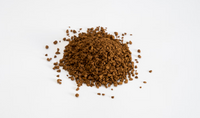Turmeric, often referred to as the "golden spice," has been celebrated for centuries for its potent health benefits. This vibrant yellow spice, derived from the root of the Curcuma longa plant, is a staple in many cuisines and traditional medicines, particularly in India. Recent scientific research has confirmed what ancient healers knew: incorporating turmeric into your daily diet can significantly enhance your health. This comprehensive guide explores the myriad health benefits of turmeric and practical ways to include it in your meals.
What Makes Turmeric So Powerful?
The primary active compound in turmeric is curcumin, which is responsible for most of its health benefits. Curcumin is a potent antioxidant and has powerful anti-inflammatory properties. However, curcumin content in turmeric is not very high, about 3% by weight. To reap the full benefits of curcumin, it is often recommended to take extracts that contain significant amounts of curcumin.
Key Nutrients in Turmeric
- Curcumin: The main active ingredient with antioxidant and anti-inflammatory effects.
- Vitamins and Minerals: Includes vitamins C, E, and K, as well as iron, potassium, and magnesium.
- Dietary Fiber: Supports digestive health.
Health Benefits of Turmeric
1. Anti-Inflammatory Properties
Chronic inflammation is a contributing factor to many common diseases, including heart disease, cancer, metabolic syndrome, Alzheimer’s, and various degenerative conditions. Curcumin in turmeric has strong anti-inflammatory properties that can help combat chronic inflammation.
Supporting Research
A study published in Oncogene indicated that curcumin is a more effective anti-inflammatory compound than common anti-inflammatory drugs such as aspirin and ibuprofen.
2. Antioxidant Benefits
Oxidative damage is believed to be one of the mechanisms behind aging and many diseases. Curcumin is a potent antioxidant that can neutralize free radicals and boost the activity of the body’s own antioxidant enzymes.
Supporting Research
Research in the Journal of Clinical Immunology demonstrated curcumin’s ability to increase the antioxidant capacity of the body, reducing oxidative stress.
3. Improved Brain Function
Curcumin boosts levels of brain-derived neurotrophic factor (BDNF), a growth hormone that functions in the brain. Low levels of BDNF are linked to brain disorders such as depression and Alzheimer’s disease.
Supporting Research
A study in the Journal of Psychopharmacology found that curcumin supplementation can improve mood and cognitive function in adults.
4. Lowered Risk of Heart Disease
Heart disease is the leading cause of death worldwide. Curcumin can improve the function of the endothelium, the lining of the blood vessels, which helps regulate blood pressure, blood clotting, and various other factors.
Supporting Research
A study published in The American Journal of Cardiology showed that curcumin reduces the risk of heart attacks in post-bypass surgery patients by improving endothelial function.
5. Cancer Prevention
Curcumin has been studied extensively as a beneficial herb in cancer treatment and has been found to affect cancer growth, development, and spread at the molecular level. Studies have shown that it can reduce angiogenesis (growth of new blood vessels in tumors), metastasis (spread of cancer), and contribute to the death of cancerous cells.
Supporting Research
A study in Cancer Letters highlighted curcumin’s potential as a chemopreventive agent, indicating its ability to reduce the growth of cancer cells.
6. Arthritis Relief
Arthritis is a common disorder characterized by joint inflammation. Given curcumin’s potent anti-inflammatory properties, it can help reduce symptoms of arthritis and improve joint function.
Supporting Research
Research in Arthritis & Rheumatology found that curcumin was more effective than a common anti-inflammatory drug in treating rheumatoid arthritis symptoms.
7. Digestive Health
Turmeric has long been used to improve digestion and reduce bloating and gas. It stimulates bile production, which is essential for digesting fats.
Supporting Research
A study in The World Journal of Gastroenterology reported that curcumin can help manage digestive disorders like irritable bowel syndrome (IBS) and inflammatory bowel disease (IBD).
8. Diabetes Management
Curcumin can help manage diabetes by improving insulin resistance and regulating blood sugar levels. It also helps reduce the oxidative stress and inflammation associated with diabetes.
Supporting Research
A study in Diabetes Care demonstrated that curcumin supplementation can improve glycemic control and reduce the incidence of diabetes in prediabetic individuals.
9. Improved Skin Health
Turmeric’s anti-inflammatory and antioxidant properties make it beneficial for skin health. It can help with conditions like acne, psoriasis, and eczema, and improve the overall glow and texture of the skin.
Supporting Research
Research published in Phytotherapy Research highlighted curcumin’s effectiveness in managing various skin conditions and enhancing skin health.
10. Enhanced Mood and Mental Health
Curcumin can cross the blood-brain barrier and has been shown to lead to improvements in the pathological process of depression. It can boost serotonin and dopamine, neurotransmitters that regulate mood.
Supporting Research
A study in the Journal of Affective Disorders found that curcumin supplementation could be an effective and safe treatment for patients with major depressive disorder.
How to Incorporate Turmeric into Your Daily Diet
Golden Milk
Golden milk is a traditional Indian drink that combines milk, turmeric, and other spices. It’s a delicious way to enjoy the benefits of turmeric.
Recipe:
- 1 cup of milk (dairy or plant-based)
- 1 teaspoon of turmeric
- 1/2 teaspoon of cinnamon
- 1/4 teaspoon of ginger powder
- Pinch of black pepper (enhances curcumin absorption)
- Honey or maple syrup to taste
Instructions:
- Heat the milk in a saucepan.
- Whisk in the turmeric, cinnamon, ginger, and black pepper.
- Simmer for a few minutes, then add honey or maple syrup.
- Serve warm.
Turmeric Smoothie
Add a teaspoon of turmeric to your morning smoothie for an antioxidant boost.
Turmeric Rice
Cook your rice with a teaspoon of turmeric for a vibrant color and health benefits.
Turmeric Tea
Steep a teaspoon of turmeric in hot water, add a dash of black pepper and honey for a soothing tea.
Turmeric Supplements
If you find it challenging to incorporate turmeric into your meals, consider taking turmeric supplements. Look for supplements that contain black pepper extract to enhance absorption.
Conclusion
Incorporating turmeric into your daily diet can provide a myriad of health benefits, from reducing inflammation and boosting brain function to lowering the risk of heart disease and improving skin health. This golden spice is versatile and can be added to a variety of dishes and beverages. By making turmeric a staple in your diet, you can take a significant step towards enhancing your overall health and well-being.


